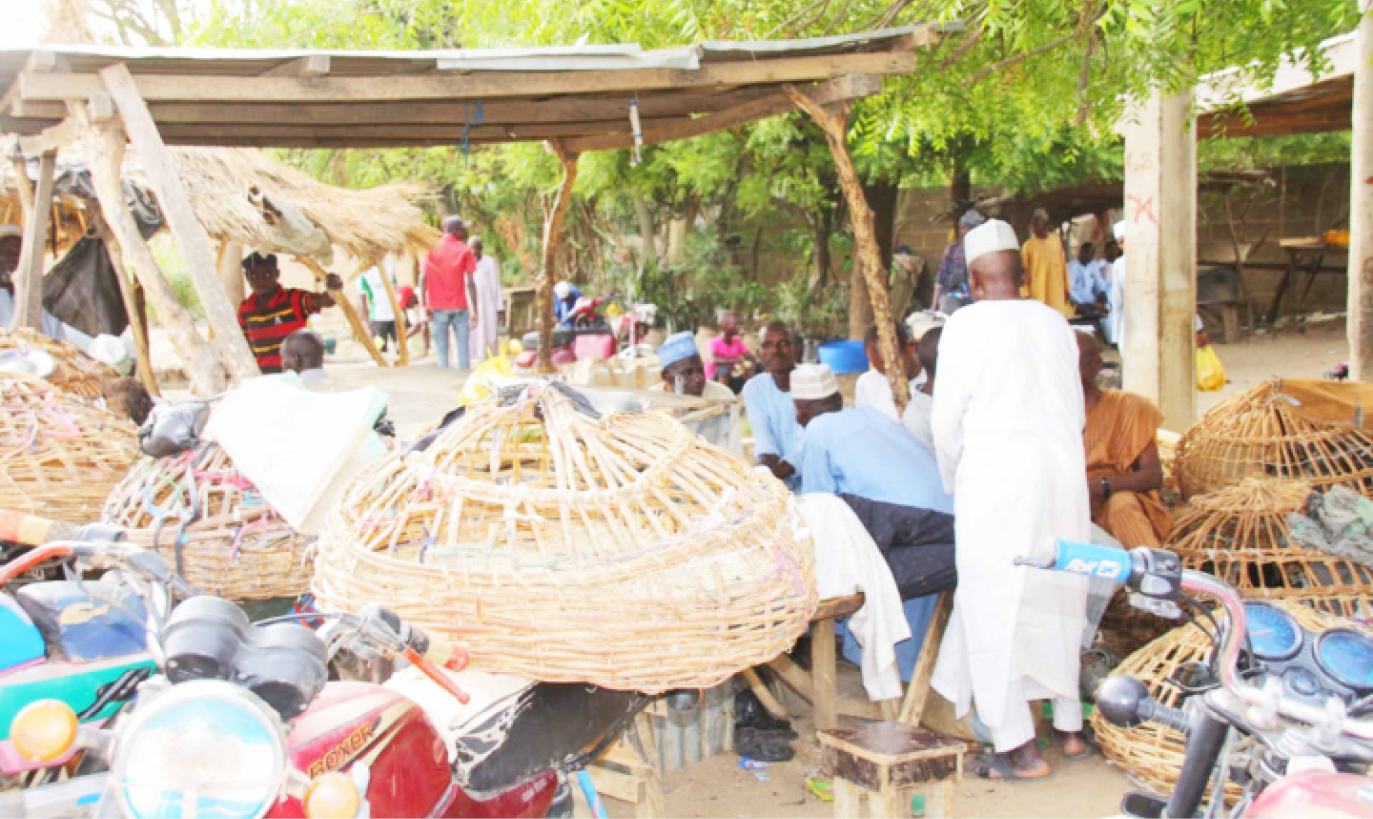Kano poultry farmers, traders groan over excess heat, low patronage
Poultry farmers and businessmen across Kano State are expressing grief over the excessive heat affecting their birds, amidst low patronage from residents despite the Sallah period, previously known for a boom in the business. It is a norm every year when the fasting period comes to an end to experience high patronage of chickens, which […]

Kano poultry farmers
Poultry farmers and businessmen across Kano State are expressing grief over the excessive heat affecting their birds, amidst low patronage from residents despite the Sallah period, previously known for a boom in the business.
It is a norm every year when the fasting period comes to an end to experience high patronage of chickens, which residents use for Sallah celebrations, but the case is different from what was obtained a couple of years back, Daily Trust on Sunday observed.
People rear these birds for commercial purposes, while others rear them at home for the festivities.
While the situation this year is highly associated with the recent cash crunch, the excessive heat, which sometimes goes up to 41 degrees Celsius in the state, has negatively affected the business.
- Stakeholders meet over Nigeria’s $3.5bn sunflower potential
- Kano poultry farmers, traders groan over excess heat, low patronage
Adamu Hamza, a businessman who keeps poultry for commercial purposes at a mini farm, told our correspondent that over 1,000 of his chickens were affected by the excess heat, resulting in the death of some of them while others suffered stunted growth.
“Honestly, this year we just have to thank God. The excessive heat is affecting this business. If you look around, the chickens are not as big as they are supposed to be; some of them cannot eat because of the weather.
“What I am just praying for is for my capital to come back. I am not even talking about making any profit this time around.
“Patronage was poor, even with Sallah celebration. Last year, by now people were looking for the chickens but there was none,” he said on Wednesday when our correspondent visited his farm.
“I had 1,200 chickens, but so far, what is remaining is not up to 500,” he lamented.
On his part, Sunusi Muhammad described the situation as a rare one experienced in decades.
“I am used to selling my chickens in bulk, but this time around, if they came to buy they would select and leave you with the once that are not good-looking because the heat didn’t allow them to grow as big as expected.
“We calculate from the day we start keeping them to when they will go out; any additional day will count on our profit.
“I am not even talking about the ones you slaughter for the fear of losing them entirely. However, it is business and there is always a time like this,” he said.
Businessmen who spoke to Daily Trust on Sunday lamented how they have also been managing the situation and hoping that there would be change.
At Tarauni market, which is known for poultry business, Sunusi Danbaba associated the situation to lack of cash in the hands of residents, coupled with the harsh economic situation in the country.
“Honestly, there is no money in the hands of people and it has affected our business. You cannot compare how the market was moving in the last few years and now. There is serious low patronage this time around.
“A chicken that cost N2,200 now sells at the rate of N2,000 or even N1,800, while a kilo sells at N1,200, from as high as N1,700 few weeks ago,” he said.
Also speaking, Nuhu Mai Kaji of Kubuta in Dansarai area, along Hadejia road said, “There is a wide margin change in the business this year. We have experienced change in prices compared to years back. Prices of our chickens have reduced by at least N200, or even more.
“Last year, at a time like this you would not even see us sitting idle; we were all busy because people were looking for the chickens, and they were even scarce.
“Back then, when you came here you did not need anybody to tell you that the business was booming, but look at us just waiting like beggars. Anybody that knows how chickens were at this market years back will really pity us this year.”
A 50-year-old Musa Abdullahi also associated the situation with the lack of cash and economic hardship people are facing.
He said, “In the situation we are in, what concerns us with chicken when we are finding it difficult to eat. Chicken is secondary to today’s current situation. Anyone eating chicken is well off.”
Speaking on the issue of losses experienced by livestock keepers, a veterinary doctor, Bashir Muhammad Lawan, said the problem started from buildings where the chickens are reared.
“Most of the problems start with building. There is a standard way of positioning a place where birds will be kept because they need enough ventilation.
“If you look at the way we are rearing them anyhow, we are bound to experience this kind of issue.
“There is a need for enough drinking water for them because they usually have serious dehydration. The birds even reduced eating much food,” he said.
He also advised that “automated water sprinklers are very important, but we don’t use them. So, until we adopt the professional way of keeping poultry, we may not enjoy it.”
